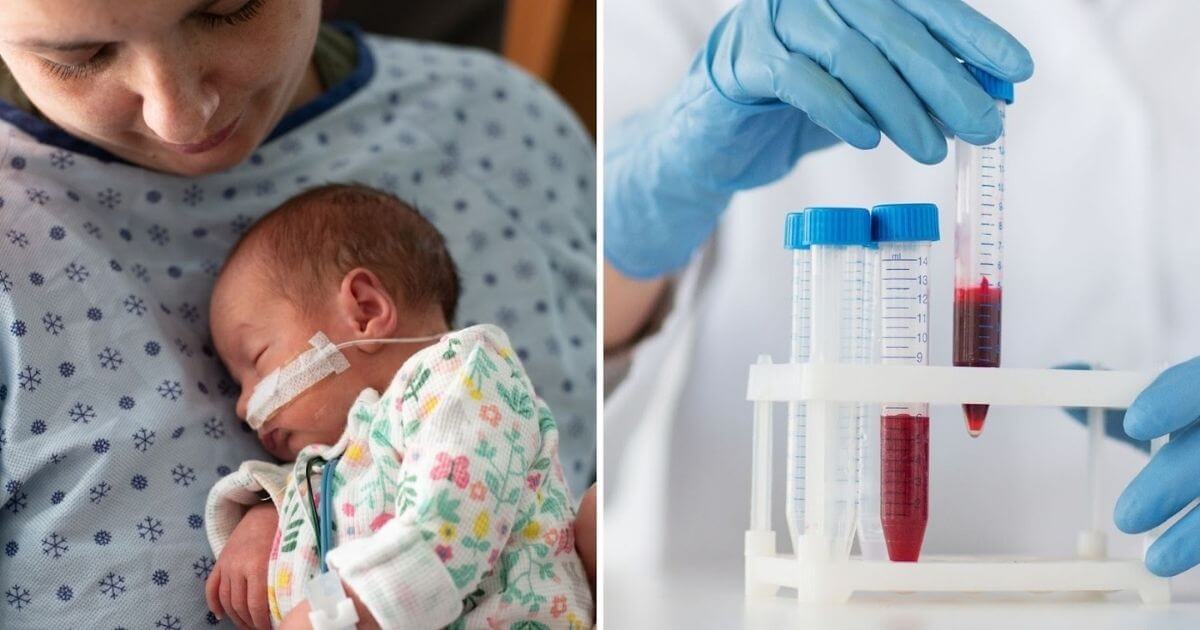Researchers at Michigan State University have found that a blood test could help identify pregnant women at risk of premature birth.
The study, published in the journal Biology of Reproduction, could help doctors identify and monitor women they know to be at an increased risk of premature birth.
Dr Hanne Hoffmann, an assistant professor in the Department of Animal Science said, “Preterm births are common…If we know the mother is at risk for a preterm birth, her doctor can monitor her more closely”.
Dr Hoffmann and her colleagues studied 157 mothers with no health issues or history of preterm births, among them 51 who subsequently experienced a premature birth. Researchers examined second-trimester data for evidence of biomarkers (a biological molecule found in blood, other body fluids, or tissues that is a sign of a normal or abnormal process, or of a condition or disease) that could signal premature labour.
“How often do you find the needle in the haystack?” Hoffmann said. “We were excited to discover lower mRNA levels in the CRY2 and CLOCK genes”.
Low levels of mRNA, or messenger DNA, in these genes is associated with a higher risk of preterm birth, suggesting they provide information as to when labour should begin.
Decreased levels of mRNA in the mother’s blood become present during the second trimester of pregnancy when most women have a 20-week prenatal appointment.
The next step would then be to determine if the CRY2 and CLOCK genes are coming from the fetus, placenta or mother. The researchers also seek to examine how the mRNA levels in healthy women compare with levels in women with underlying conditions or a history of premature births to determine if the test could be helpful for these at-risk mothers, too.
Dr Hoffman said: “If we could measure women’s mRNA levels and tell them for their second or third pregnancies, that they aren’t at risk for a preterm birth because their levels are higher (in a normal/healthy range), that would be such a comfort to the mothers who previously had a preterm birth”.
The researchers are also interested in exploring the role of other genes such as another circadian clock gene PER3, that in combination with levels of CRY2 and CLOCK may indicate other pregnancy complications such as preeclampsia and gestational diabetes.
Survival rates for babies born before the abortion limit are increasing
Babies are continuing to be born before or shortly after the UK’s abortion limit of 24 weeks gestation and going on to live and even thrive at greater rates than before. Studies suggest that the majority of premature babies grow up to be healthy adults without any major health problems.
A study, published in the Journal of the American Medical Association in October 2019, followed 2.56 million babies born in Sweden between 1973 and 1997, around six percent of whom were born prematurely.
Researchers compared the health data of premature babies to those that had been born at full term. They found that 55% of premature babies had no serious chronic, physical, or mental health issues by early adulthood. This is compared to 63% for babies born at full term.
Additionally, with each passing decade, the odds of survival for a premature baby to adulthood have improved from about 91% of babies born in the 1970s to about 96% of those born in the 1990s.
In May this year, a new clinical trial in Australia laid the groundwork for premature babies born with Patent ductus arteriosus (PDA) to be treated with paracetamol. PDA, the heart problem in question, is a condition in which excess blood flows to the baby’s lungs at birth, causing breathing difficulties. The condition affects half of infants born at less than 29 weeks gestation.
Furthermore, in October last year, another severely premature baby was born in Scotland almost 2 weeks below the abortion limit. Sofia Viktoria Birina weighed only 500g, but by February this year, she was healthy enough to be sent home with her parents.
A spokesperson for Right To Life UK, Catherine Robinson, said: “There are so many wonderful stories of premature babies, or babies at risk of a premature birth, going on to survive, and it is fantastic to see so many advances in our ability to medically treat them and their mothers so that they are able to live and thrive”.
“Yet with such stories becoming almost commonplace, when will our lawmakers decide to finally re-examine our cruel abortion laws that permit abortion even after the point at which babies are able to survive outside the womb?”
“Of course, babies who cannot survive outside the womb have the same dignity and worth as the babies that can, and their lives should not be ended either. But the fact that more and more premature babies are going on to survive due to the medical advances discovered by the likes of Dr Hoffman and her team, is yet more evidence of the cruelty of abortion laws in many self-proclaimed ‘modern’ and ‘progressive’ countries”.












